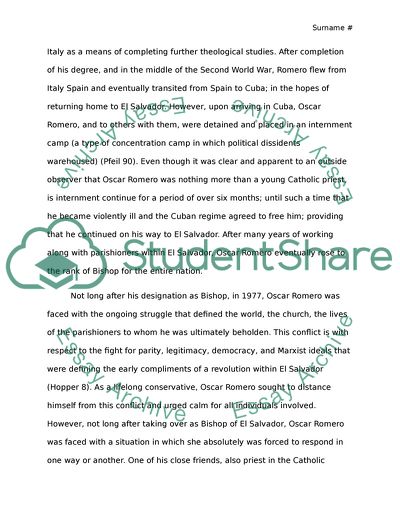Cite this document
(“Oscar Romero Research Paper Example | Topics and Well Written Essays - 1500 words”, n.d.)
Retrieved from https://studentshare.org/literature/1631132-oscar-romero
Retrieved from https://studentshare.org/literature/1631132-oscar-romero
(Oscar Romero Research Paper Example | Topics and Well Written Essays - 1500 Words)
https://studentshare.org/literature/1631132-oscar-romero.
https://studentshare.org/literature/1631132-oscar-romero.
“Oscar Romero Research Paper Example | Topics and Well Written Essays - 1500 Words”, n.d. https://studentshare.org/literature/1631132-oscar-romero.


